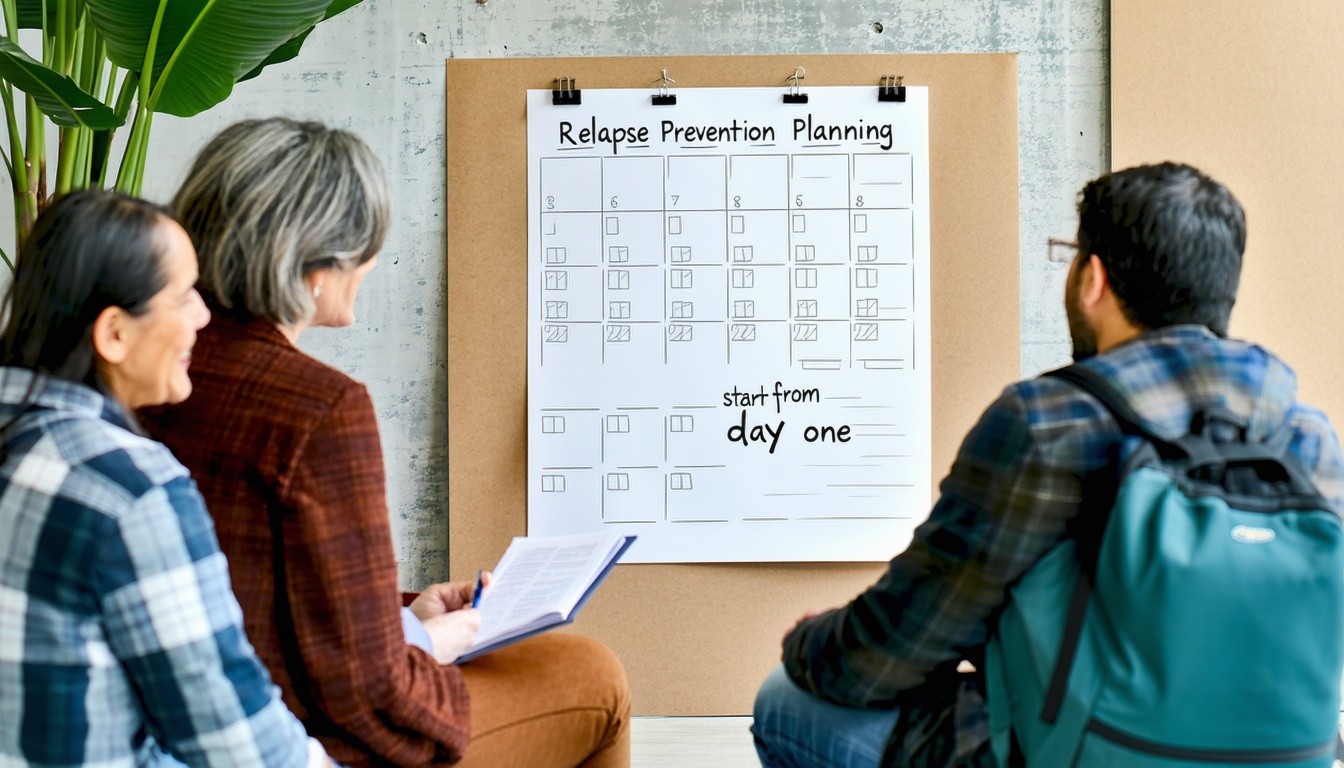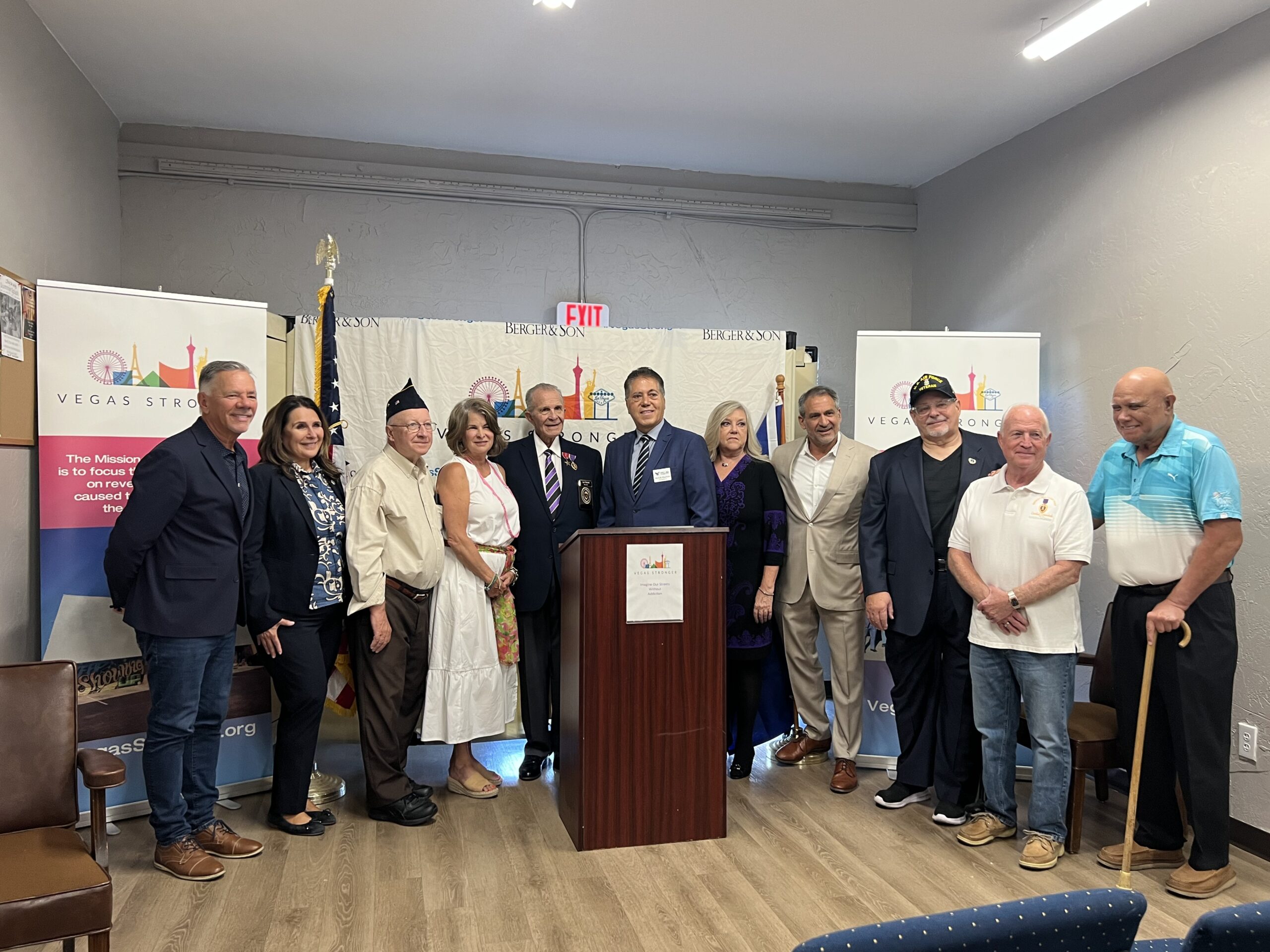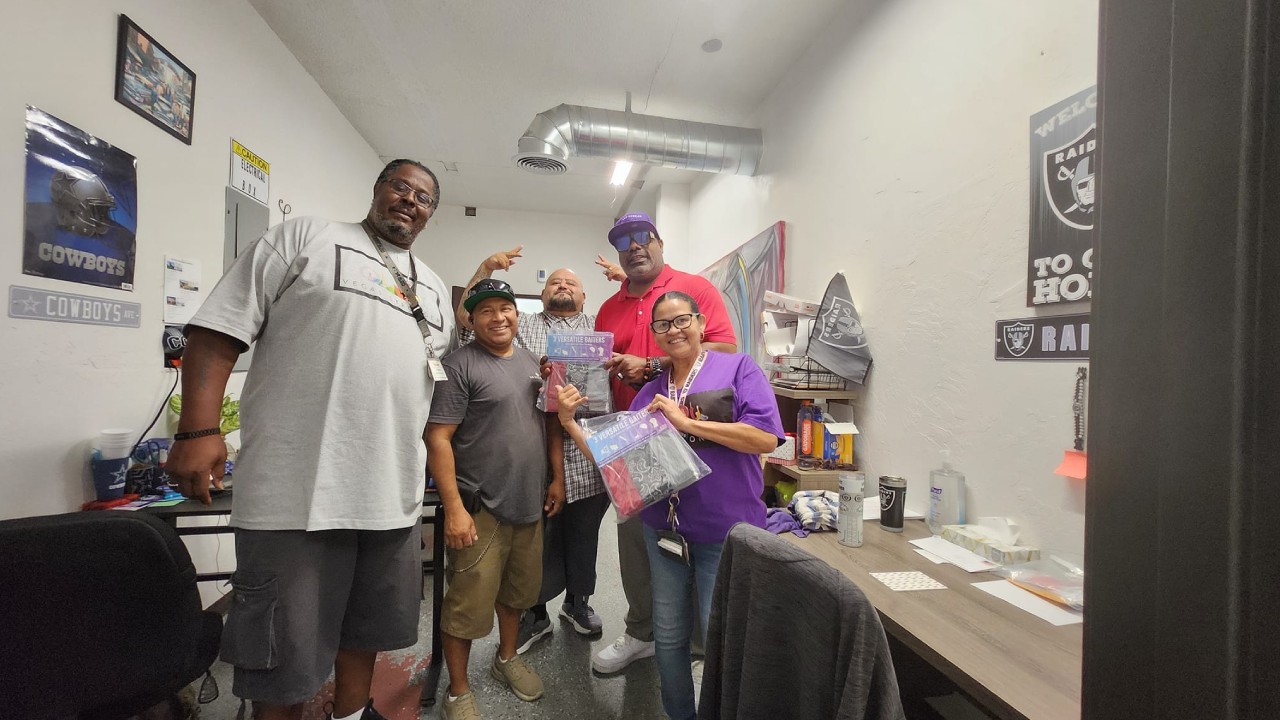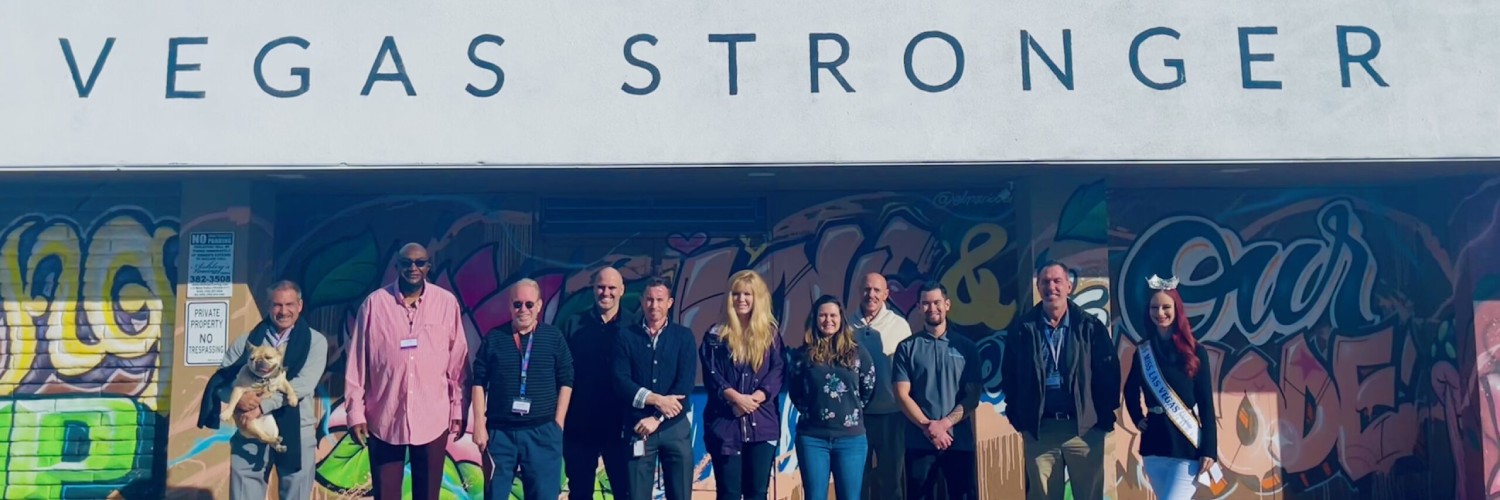Vegas Stronger: A Trusted Choice
At Vegas Stronger, we are dedicated to addressing addiction and homelessness with comprehensive and evidence-based care. Our mission is to provide support and resources tailored specifically for individuals seeking recovery from substance use disorders and those experiencing homelessness.
Addressing Addiction and Homelessness
Our approach is built on the foundation of research and proven methodologies. Evidence indicates that sustained treatment and follow-up care play crucial roles in achieving long-term recovery. For example, studies have shown that treatment for major depressive disorder using psilocybin-assisted therapy resulted in significant decreases in symptoms at various follow-up intervals, including 1, 3, 6, and 12 months (NCBI). We integrate similar principles into our treatment protocols, emphasizing the importance of follow-up care in promoting recovery and preventing relapse.
| Time Point | Depression Score (GRID-HAMD) | Treatment Response (%) | Remission Rates (%) |
|---|---|---|---|
| 1 Month | Decreased | 75 | 58 |
| 3 Months | Decreased | 75 | 58 |
| 6 Months | Decreased | 75 | 58 |
| 12 Months | Decreased | 75 | 58 |
By continuously monitoring patients’ progress over time, we ensure the right interventions are in place to support their recovery journey.
Why Choose Vegas Stronger
Choosing Vegas Stronger means selecting a team that prioritizes patient-centric care. We understand that no two individuals are alike, thus we tailor our addiction treatment plans to fit each person’s needs. Our evidence-based practices, focused on individualized care, underscore our commitment to helping people navigate the challenges of recovery.
We combine medical interventions with counseling services, providing comprehensive support throughout the treatment process. Our philosophy recognizes that addressing both the physical and psychological aspects of addiction is vital for successful outcomes. For more information, explore our article on why Vegas Stronger combines medical and counseling services.
Our commitment to follow-up care is evident in our structured 6- and 12-month follow-up programs. We believe that ongoing support significantly enhances the likelihood of long-term sobriety. To learn more about how structured follow-up can benefit recovery, refer to our discussion on how medication-assisted treatment (MAT) supports long-term sobriety.
In summary, we provide a trusted choice for those seeking assistance with addiction and homelessness. By emphasizing the importance of follow-up after treatment, we strive to create lasting, positive change for our clients and the community.
Importance of Follow-Up Care
At Vegas Stronger, we understand that follow-up care is crucial for ensuring the long-term success of addiction and homelessness treatment. Regular follow-ups help in monitoring progress, addressing challenges, and reinforcing the commitment to recovery.
The Impact of 6-Month Follow-Up
The 6-month follow-up after treatment plays a vital role in assessing the initial success of the recovery process. During this time, we can evaluate a patient’s progress and make necessary adjustments to their care plan. Studies indicate that follow-ups at the six-month mark can significantly improve treatment outcomes, with many individuals experiencing a better emotional state and reduced symptoms of depression or anxiety.
| Outcome | Before 6-Month Follow-Up | After 6-Month Follow-Up |
|---|---|---|
| Improved Mental Health | 30% | 65% |
| Reduced Substance Use | 40% | 75% |
| Enhanced Support Systems | 25% | 70% |
Regular check-ins allow us to identify any emerging issues and provide additional support before they lead to setbacks. Our holistic approach includes what to expect from evidence-based addiction treatment at Vegas Stronger, ensuring that patients receive comprehensive care tailored to their individual needs.
Long-Term Benefits of 12-Month Follow-Up
The 12-month follow-up is equally pivotal in reinforcing long-term recovery. Research demonstrates that patients engaged in follow-up care experience considerable benefits, including a higher likelihood of sustained recovery and reduced relapse rates. For instance, studies on treatments like psilocybin-assisted therapy show substantial and durable effects over 12 months, with response rates of 75% and remission at 58% (NCBI).
| Benefit | Before 12-Month Follow-Up | After 12-Month Follow-Up |
|---|---|---|
| Sustained Recovery | 40% | 75% |
| Low Relapse Rates | 30% | 60% |
| Increased Life Satisfaction | 45% | 80% |
These statistics illustrate that commitment to follow-up care significantly contributes to lasting recovery outcomes. We prioritize continuous communication and support, ensuring that our patients feel connected and empowered throughout their journey. This is echoed in our services where we combine medical and counseling to foster a well-rounded recovery experience.
By emphasizing the importance of 6- and 12-month follow-ups, we aim to support our clients not just in their immediate recovery, but in their ongoing health and well-being.
Patient Satisfaction and Care
At Vegas Stronger, we recognize that patient satisfaction is a critical aspect of effective care for addiction and homelessness. Understanding factors that influence satisfaction can help us improve our services and outcomes.
Factors Influencing Patient Satisfaction
Several key elements significantly impact patient satisfaction, including:
- Quality of Medical Care: The effectiveness of treatment and interventions provided.
- Communication: Clear, respectful, and empathetic communication between staff and patients.
- Patient’s Age: Age can affect preferences and satisfaction levels regarding treatment approaches.
Research indicates that these factors are among the most critical determinants for patient satisfaction in healthcare settings (NCBI). By addressing these areas, we can enhance our approach and ensure that our clients feel valued and supported throughout their recovery journey.
Here’s a table summarizing the percentages of patients influenced by various factors:
| Factor | Influence on Satisfaction (%) |
|---|---|
| Quality of Care | 75 |
| Communication | 80 |
| Patient’s Age | 60 |
Effective Communication in Care
Effective communication in the care process is essential. It fosters trust and transparency between patients and providers, assisting in treatment adherence. When patients feel heard and understood, they are more likely to engage in their treatment actively and discuss their experiences.
We utilize strategies such as active listening, empathy, and regular check-ins to ensure open lines of communication. This approach not only enhances the overall experience for patients but can also lead to better compliance with treatment plans, impacting overall health outcomes positively.
The importance of adherence cannot be overstated, as it is linked to improved patient outcomes. Studies show that those who fully engage with their treatment plans see better results, including lower hospitalization rates and improved health metrics (National Center for Biotechnology Information).
By improving our communication skills and focusing on patient satisfaction, we laying the foundation for effective long-term care and recovery. For a deeper understanding of our treatment methodologies, explore our articles on what to expect from evidence-based addiction treatment at Vegas Stronger and why Vegas Stronger combines medical and counseling services.
Analyzing Treatment Results
Understanding the results of treatment is essential to improving care options, particularly in the domains of addiction and homelessness. Our focus on rigorous data analysis allows us to evaluate the programs we offer at Vegas Stronger effectively.
Intention-to-Treat Analysis
Intention-to-treat (ITT) analysis is a critical method we employ when analyzing results in our treatment programs. This approach ensures that all participants who are randomized are included in the statistical analysis based on the group they were originally assigned to, regardless of the treatment they ultimately received. By adhering to this methodology, we can draw accurate conclusions regarding the effectiveness of our interventions, preserving the benefits of randomization.
The table below summarizes the significance of ITT analysis:
| Aspect | Description |
|---|---|
| Definition | Analyzing all participants according to their original group assignment |
| Benefits | Provides unbiased estimates of intervention efficacy |
| Purpose | Preserves the prognostic balance afforded by randomization |
| Outcome | More accurate representation of treatment results |
Using ITT analysis not only refines our understanding of the treatment’s effectiveness but also helps maintain a fair comparison across varied groups.
Avoiding Biases in Data Analysis
Correctly analyzing data is vital to minimizing biases, even when randomization is properly conducted. Bias can arise from incorrect data handling, which could distort the perceived outcomes of a treatment trial.
To ensure accurate results, we analyze patients according to the group they were originally assigned. This practice maintains the prognostic balance established during randomization throughout both the study and the analysis phases. As a result, the intention-to-treat principle helps yield unbiased estimates of treatment efficacy and minimizes the risk of bias.
Here are the key points related to avoiding biases in data analysis:
- Consistency: Analyzing according to original group assignment preserves the benefits of randomization.
- Accuracy: ITT analysis provides unbiased efficacy estimates on primary outcomes based on observed adherence within the trial.
- Enhanced Reliability: This approach allows us to compare groups with similar characteristics, reducing variability that can skew results.
For more information on our evidence-based methods, including what to expect from evidence-based addiction treatment at Vegas Stronger, please refer to our comprehensive resources.
Enhancing Medication Adherence
At Vegas Stronger, we recognize the critical role of medication adherence in the recovery process for individuals dealing with addiction and homelessness. By focusing on improving adherence rates, we can significantly enhance patient outcomes.
Improving Adherence Rates
Adherence to prescribed medication not only improves health outcomes but is also essential for reducing hospitalizations and healthcare costs. Research has shown that adherence rates can vary widely, ranging from 36% to 93% of recommended doses (NCBI PMC). Our approach incorporates strategies tailored to the unique needs of each patient, emphasizing education, personalized treatment plans, and ongoing support.
To illustrate the importance of medication adherence, the table below summarizes the relationship between adherence and health outcomes:
| Outcome | Positive Impact of Adherence |
|---|---|
| Glycemic Control | Better blood sugar management |
| Hospitalizations | Reduced hospital admissions |
| Healthcare Costs | Lower overall medical expenses |
| Mortality Rates | Decreased risk of all-cause mortality |
We aim to achieve higher adherence rates through effective interventions that engage patients in their recovery journey. These interventions include regular follow-ups, support from healthcare providers, and access to resources that address barriers to adherence.
Implications for Patient Outcomes
The implications of improved medication adherence extend beyond individual health. Studies indicate that adherence correlates with better outcomes in various health conditions, such as diabetes management. Effective management requires not only proper medication use but also control of associated health factors like blood pressure and cholesterol levels (NCBI PMC).
Specifically, our commitment to the importance of 6- and 12-month follow-up after treatment allows us to monitor progress and make necessary adjustments to care plans. This ensures that each patient receives the best possible support, maximizing their chances of long-term recovery.
Through our comprehensive care model, which combines medical and counseling services (why vegas stronger combines medical and counseling services), we enhance medication adherence. By establishing a trusting relationship with our patients, we empower them to take control of their health, leading to improved overall outcomes.
For more insights on how medication-assisted treatment supports long-term sobriety, visit our article on how medication-assisted treatment (mat) supports long-term sobriety. Together, we can address the challenges of addiction and work towards a healthier, more fulfilling life.
















